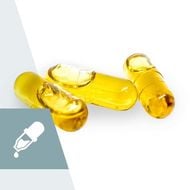
Getting The Most Out Of Caffeine
Caffeine has long been a part of daily life, with many people in the modern world opting for a morning tea or coffee for a boost of energy. In this article, we take a closer look at caffeine in its various forms, and delve deeper into its origins, potential wellness benefits, side effects, and more. Learn all you need to know.
Whether you can't even begin to think about starting your day without a morning coffee or tea, or you simply love the occasional energy drink for a mid-afternoon pick-me-up, there's no denying that caffeine is a part of everyday life.
Of course, caffeine is not just limited to the examples mentioned above, as it can be found in a wide variety of products. But how can you get the most out of this stimulant? Here, we take a deep dive into everything you need to know to harness caffeine to its fullest.
What is caffeine

Caffeine is a natural chemical found in tea, coffee, and cacao, as well as a host of other plants. It acts as a central nervous system stimulant, thereby promoting alertness and potentially boosting physical performance and energy. Of course, the effects of caffeine vary from person to person (more on that shortly).
In the body, caffeine mimics adenosine, a naturally occurring neurotransmitter, and binds to the A1 and A2A adenosine receptors in the brain. In doing so, adenosine is blocked from binding, temporarily preventing it from exerting its effects. By blocking the A1 receptor, feelings of relaxation and tiredness are delayed, and by blocking the A2A receptor, dopamine is released. Furthermore, caffeine's effects on the brain stimulate the adrenal glands to produce adrenaline, which works to increase blood circulation and breathing, and prepares the muscles for exertion. Working in conjunction, these effects culminate in caffeine’s energising and pleasurable influence.
Origins of caffeine

Given that caffeine can be found in a number of different plants, just how long have humans been using it to give themselves an edge? It's thought that caffeine was first enjoyed in the form of tea, dating back to as early as 2737 BCE. Coffee, on the other hand, was discovered later. One tale tells of an Ethiopian goat herder, named Kaldi, discovering coffee’s caffeine content when he saw goats prancing and frolicing, full of energy, after eating coffee beans. Whether this is true or just a myth is unclear.
It wasn't until the 15th century that coffee really rose to prominence as cultivation and trade industries began on the Arabian Peninsula. And in the 17th century, coffee made its way over to Europe. Although, it wasn't well-received at first, with the local clergy in Venice declaring that coffee was the “bitter invention of Satan”. Pretty strong words. But fast forward to the mid-1600s, when coffee finally reached the US, and the rest is history.
Since this point, caffeine has been a mainstay amongst people from all walks of life. And with the invention of carbonated caffeine drinks toward the end of the 1800s, the appeal has only broadened. It's said that, today, around 80% of the world's population consumes at least one caffeinated product each day (Heckman et al., 2010).
Natural vs synthetic caffeine
When browsing for caffeinated products, you'll more than likely see the term “synthetic” used. But how does it stack up compared to natural caffeine? Side by side, both are chemically identical. The difference is that the synthetic version is created using urea and chloroacetic acids, whereas natural caffeine can be extracted from over 60 species of plants. Synthetic caffeine can be mass-produced, and as such is commonly used in energy drinks and carbonated soft drinks. Regardless of whether you opt for natural or synthetic caffeine, the effects are exactly the same.
Effects of caffeine

The effects of caffeine are well-documented, and you’ve probably experienced them yourself. Nevertheless, as with all drugs, caffeine's impact can vary from person to person. As a rule of thumb, doses between 40 and 300mg are recommended in order to experience its energising effects. While some individuals might only require, say, one cup of coffee to achieve this, others might need several to feel the same effects.
Below are some areas in which researchers have found links between caffeine and potential wellness benefits.
Cognitive function
Does drinking coffee or energy drinks, or taking caffeine supplements and capsules, improve our ability to focus on the task at hand and retain information? That is a topic up for debate. In a large review of studies from 2010, caffeine intake was found to improve performance in tasks related to working memory to a degree, but it actually hindered performance in tasks that heavily depend on working memory (Nehlig, 2010). However, caffeine was found to benefit reaction time in a large share of the studies reviewed, and its ability to boost cognitive performance was most notable in fatigued populations.
Physical performance
One area in which caffeine has a significant amount of scientific support is in potentially boosting physical performance. This ergogenic (performance-enhancing) effect is exploited widely by all types of athletes, with beneficial effects noted in endurance athletes, team sport athletes, and weightlifters (Martins et al., 2020). While there are some caveats to this, both amateur and professional athletes and gym-goers frequently use caffeine, in isolation or together with other supplements, to help them push a little bit further.
Should you be worried about caffeine’s side effects?

Much like the potential benefits of caffeine, there are also some pretty well-known side effects. While they typically aren't severe, they can be uncomfortable and frustrating. The main way to avoid these side effects is to stick within the recommended range (40–300mg) and avoid drinking too much caffeine within a short space of time.
Here are the main side effects to be aware of.
Trouble sleeping
Arguably the most well-known and common side effect of caffeine consumption is trouble sleeping. As we know, caffeine is a stimulant and has the potential to keep us alert and awake. While this is great during the day when we need to carry out tasks, it's not so helpful in the evening when we're trying to find rest. It's thought that caffeine stays in the system for around five hours with just a regular dose. So if you find yourself lying awake at night, restrict your caffeine consumption to the morning only.
Fatigue
While caffeine is known to provide an energy boost, in large concentrations and with repeated use it can cause fatigue-like symptoms once it leaves the system. Symptoms such as headaches, dizziness, and muscle ache are just a few telltale signs that a person is experiencing a caffeine “crash”. However, this can be easily remedied by limiting caffeine intake.
Nausea
A common side effect of taking too much caffeine is nausea. Especially in larger quantities, caffeine is dehydrating, which can quickly lead to stomach discomfort. For the most part, this can be avoided by staying hydrated, curbing your caffeine intake, and eating something before drinking caffeine in the morning.
Frequent urination
Caffeine also stimulates the bladder. In fact, the diuretic effects of caffeine are well-known to almost anyone who uses it. While this won't be very noticeable with a regular amount of caffeine, those consuming over 400mg a day will potentially notice a significant increase in their bathroom habits.
Anxiety
There's no doubt that the relationship between caffeine consumption and anxiety is a complex one that still needs plenty of research. But as caffeine has a strong effect on the central nervous system, it's not uncommon to feel tense and jittery after imbibing a considerable amount.
Caffeine withdrawal
Withdrawal is arguably one of the most uncomfortable symptoms of excess caffeine use. If you're forced to go without your daily coffee or energy drink, for whatever reason, you'll likely find yourself with a nagging headache, potentially accompanied by other withdrawal symptoms such as nausea and a generally irritable attitude.
Overall, the side effects associated with caffeine aren't considered severe or life-threatening. But if you have any concerns or health conditions, you should always speak to a medical professional for case-specific advice.
Healthshop
Supplements for every need. From sleep and brain to energy, mushrooms, and more to support a healthy lifestyle.
How can you try caffeine for yourself?

As you can probably tell by this point, caffeine is simply everywhere. Perhaps you've read this article with your favourite soft drink in hand; well, chances are it contains caffeine. Of course, there's nothing wrong with including it in a varied diet, as the vast majority of side effects stem from overuse. But how can you get caffeine into your daily life? Arguably the most common method is brewing tea or coffee in the morning. But did you know there are even easier ways to get a regular and controlled dose of caffeine?
Here at Zamnesia, we offer a range of caffeine-based supplements bolstered with additional vitamins and minerals that work with your daily life. Easy to use, our supplements can be taken anywhere you go and offer up the same energy-boosting effects as other means of consuming caffeine, as well as a host of other potential effects. So if you've been looking for different ways to introduce caffeine into your life, check out what Zamnesia's Healthshop has to offer.
- Heckman, M. A., Weil, J., & de Mejia, E. G. (2010). Caffeine (1, 3, 7-trimethylxanthine) in Foods: A Comprehensive Review on Consumption, Functionality, Safety, and Regulatory Matters. Journal of Food Science, 75(3), R77–R87. - https://ift.onlinelibrary.wiley.com
- Martins, Gabriel Loureiro, Guilherme, João Paulo Limongi França, Ferreira, Luis Henrique Boiko, de Souza-Junior, Tácito Pessoa, Lancha, & Antonio Herbert Jr. (2020/12/11). Caffeine and Exercise Performance: Possible Directions for Definitive Findings - https://www.frontiersin.org
- Nehlig, & Astrid. (2010/04/14). Is Caffeine a Cognitive Enhancer? - https://content.iospress.com
-
 5 min
29 June 2021
What Are The Effects Of Caffeine On Studying?
If you're wondering how to use caffeine to maximise your studying potential, then you've come to the right place! As with all drugs, there are optimal amounts that make good results more likely....
5 min
29 June 2021
What Are The Effects Of Caffeine On Studying?
If you're wondering how to use caffeine to maximise your studying potential, then you've come to the right place! As with all drugs, there are optimal amounts that make good results more likely....
-
 5 min
25 July 2019
The Best Alternatives To Coffee: Natural Ways To Boost Energy
Although it may be hard to believe, not everybody is a fan of coffee. In case you happen to be one of those people, here is a list of perfect alternatives to the famous caffeinated beverage. Some...
5 min
25 July 2019
The Best Alternatives To Coffee: Natural Ways To Boost Energy
Although it may be hard to believe, not everybody is a fan of coffee. In case you happen to be one of those people, here is a list of perfect alternatives to the famous caffeinated beverage. Some...





 United States
United States












